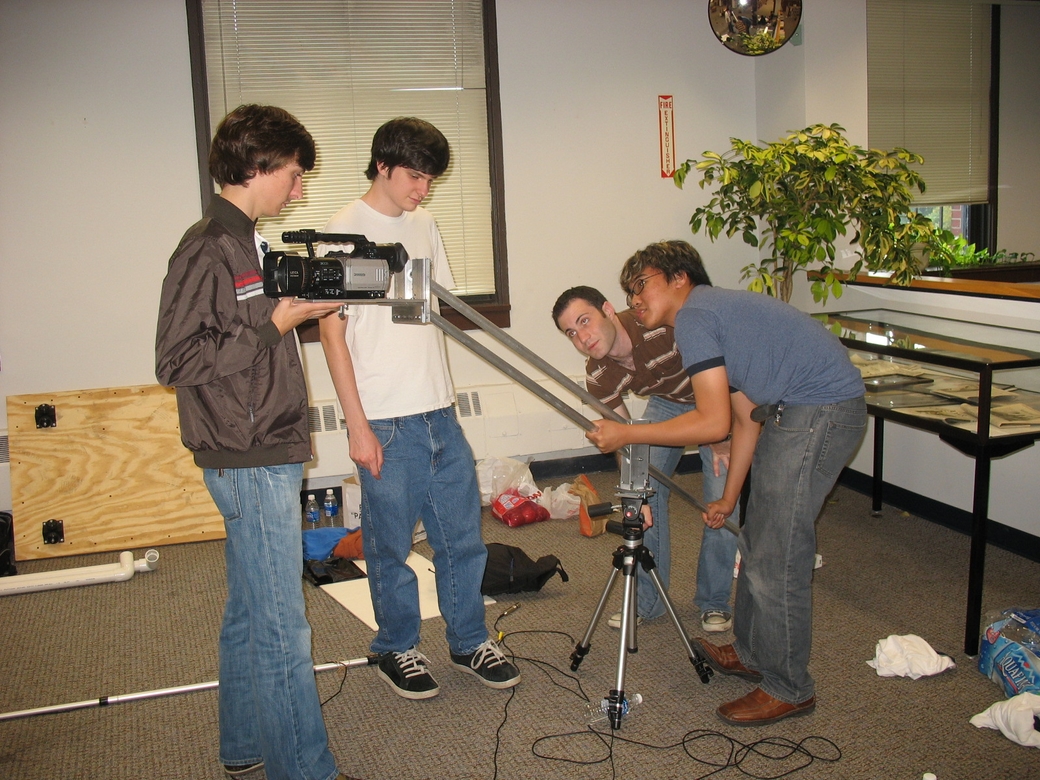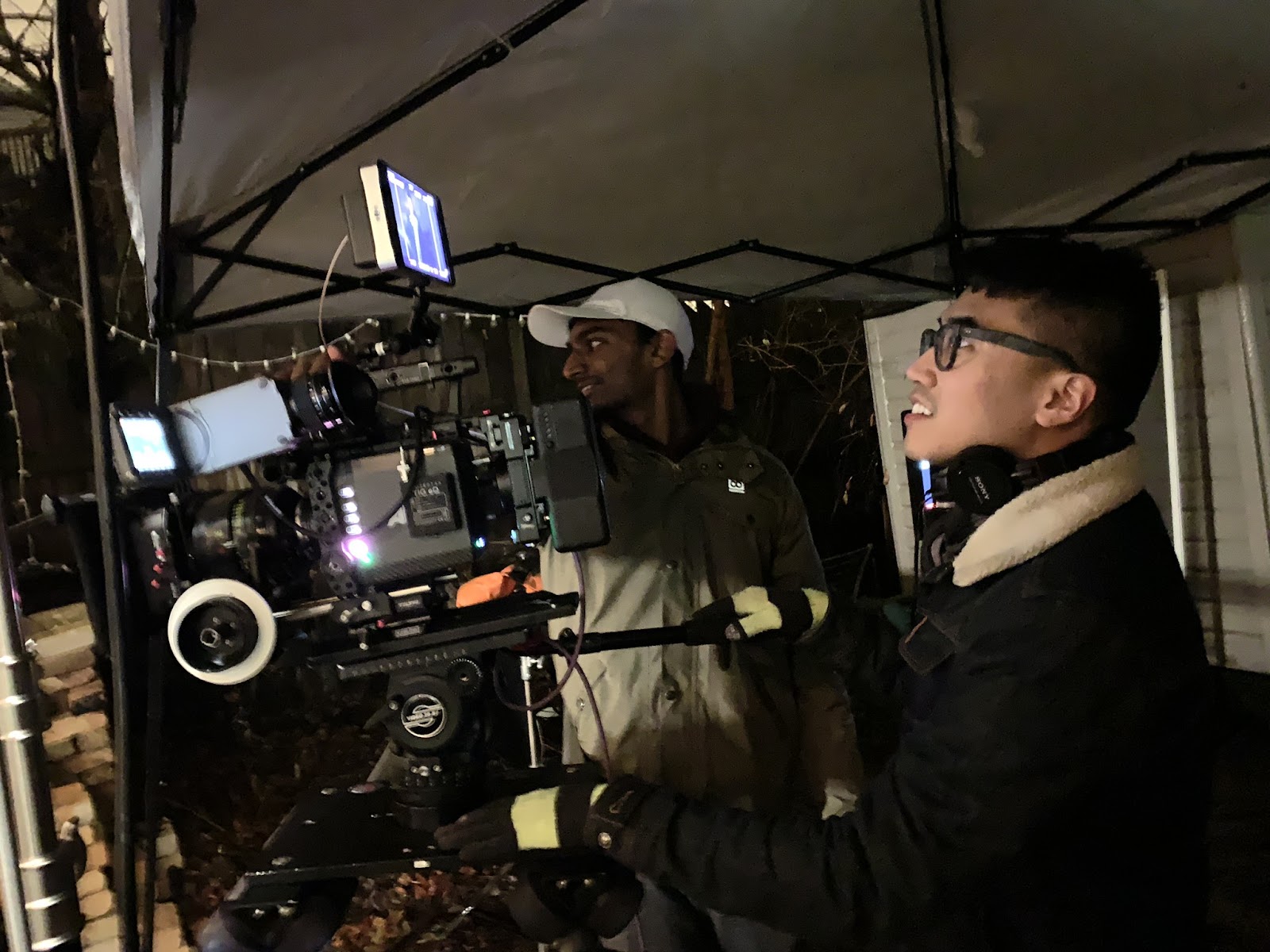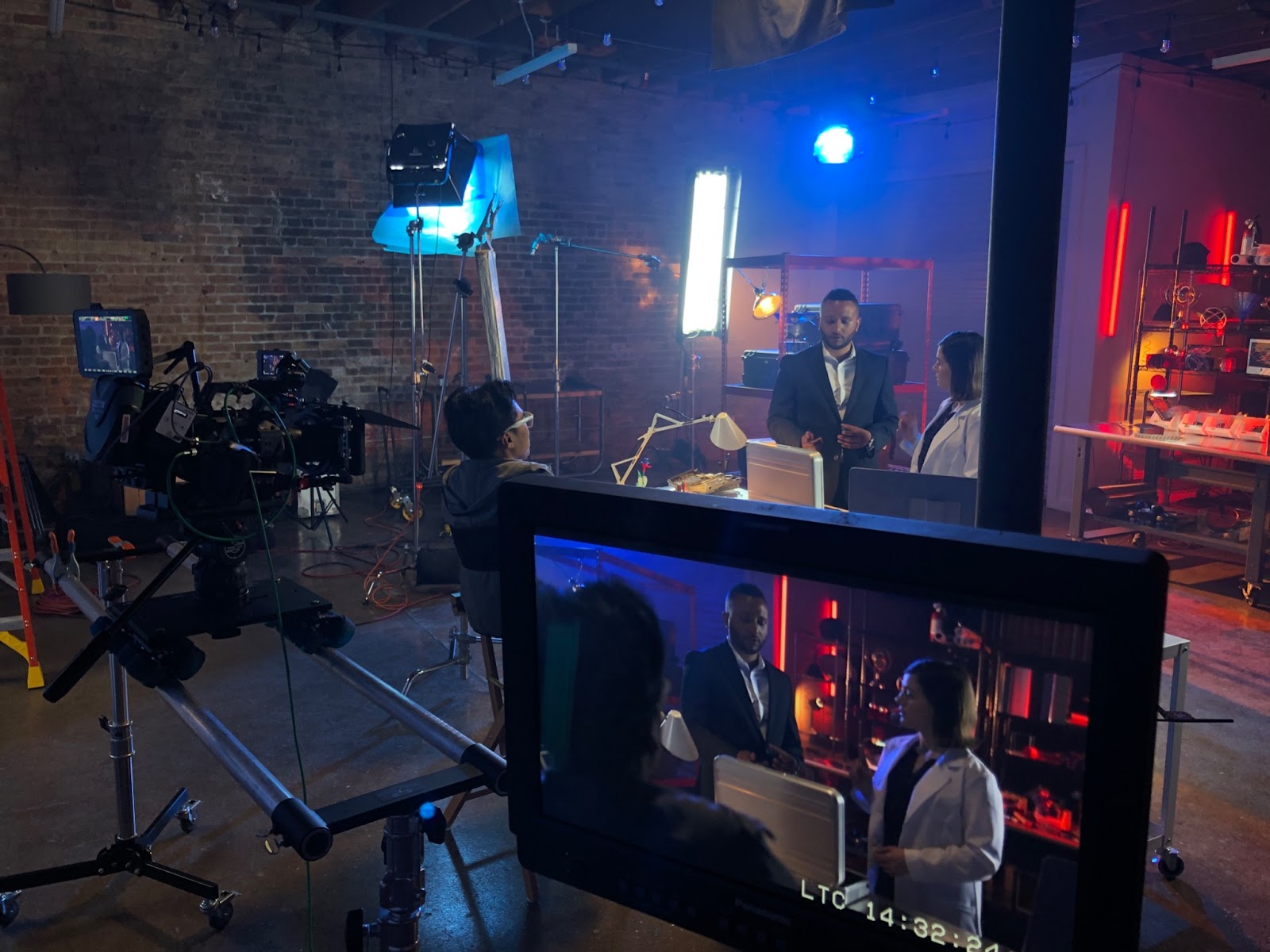DIRECTING: You Have One Job. Which is a Million Jobs.
Recently, a film student reached out to me seeking advice on how to hone her directing skills, as she was nearing completion of her undergraduate program at my alma mater, Columbia College Chicago.

It got me asking myself what a director even does.
Certainly there’s more to it than saying “yes/no,” as this scene from Nine would have us believe, right?
After some introductory pleasantries, here’s a list of the nuts-and-bolts advice I shared with this young filmmaker:
Growing your skills as a director:
1. Know how to hire the right people for the right job - It really is true what they say. Hiring is 90% of the job. In an audition, an actor will give you their baseline understanding of the character, and it is often hard to nudge them outside of that box. The same is true for hiring anyone else: a DP, a makeup artist, a costume designer. You can make helpful suggestions that guide and inspire people, but you can’t really change someone’s baseline instincts altogether. So be wary not to cast or hire someone with the belief that you can change them - I have seen it happen too many times and have been guilty of that myself in the past. It’s important when you hire someone to accept their highs and lows. Decide how you will motivate them to leverage their strengths and minimize their weaknesses. If you can’t bring yourself to accept their weaknesses, or if their strengths aren’t relevant to the project, then move on to someone else.
2. Know as much as you can about every job - In addition to my main sources of revenue as a director, writer, and editor/animator, I’ve had experience at one time or another as an actor, DP, and production designer. The more I learn about each role, the more I understand what the people in those roles must deal with, what problems they are stressed about solving on set, and how they see their world. In my off-hours, I read and learn about the art of costuming, makeup, production designing, and visual effects as if I were a person dedicating my life to that particular field. As with any job, it’s important to form what folks call “T-shaped knowledge”; that is, you go deep with a particular skill set (the vertical part of the T) but have working knowledge of other related disciplines (the horizontal part of the T).
3. Know how to judge things - This is so personal that it’s hard to get too in-depth with it, but broadly speaking, learn to cultivate your skills of knowing to spot when something is “off” about an actor’s performance or a piece of set dressing, and then understand why it feels off to you. Learn to brainstorm how to not only erase the issue, but to adjust it so that it becomes a positive that will benefit the end product. This is the chief skill you will be cultivating for the rest of your life as a director, so take it seriously!

(These stills are for your benefit, blog reader. I definitely did not send this advice-seeking film student photos of myself, as that would be unhinged.)
4. Know how to communicate what needs to be fixed - The most frustrating thing an actor or crew member can hear is that the director doesn’t like something but can’t say why. It’s okay to say off the bat that you don’t know why you don’t like something, but understand that it is only a start. Your job is not only to stand there and give a thumbs-up or thumbs-down (even though it may seem like it is). Your job is to be a coach, a guide, a cheerleader, and a mentor. Express very clearly why something doesn’t work and what you want to change about it. This can be daunting when you’re dealing with an expert who knows more than you - in many ways, by definition, everyone on set is more of an expert at their job than you are. But you do come with significant authority as the on-set tastemaker and holder of the overall vision. Use that vision to help express what you want to see and how your cast/crew can achieve it.
5. Protect your cast/crew - You have two goals on set, and they sometimes (often??) compete with each other. The first is to protect your cast/crew. Understand their needs, wants, anxieties, and desires. Give your actors regular breaks; keep them hydrated and healthy. Protect their ego; don’t yell your notes across the set. Treat everyone with respect. They are not your puppets; they’re, in fact, people. (This all may sound obvious, but tell it to tons of aspiring and established directors who tend to act otherwise.) If your client wants your actor to do something humiliating or your crew to do something dangerous, tell your producer you don’t want it to happen and do everything in your power to prevent it from happening.

6. Protect the work - Everyone has a great idea of how to make the work better: the actor who wants to shout at the top of his lungs, the client who wants the actor to hold the product closer to the camera, the hair/makeup artist who wants to contour every face in sight. You are the filter for all these ideas, and you decide which ones get in front of the camera and which ones don’t, in order to give the end viewer the best possible experience. Even if your authority is superseded by the producer or the client, it’s your job to decide how the note is going to work and how you will incorporate it without damaging the end viewer’s experience. That said...
7. Be okay with being annoying - I wish someone would have told me this 10 years ago. I would have been 10 years further along in my career.